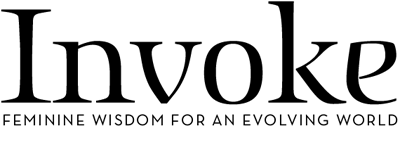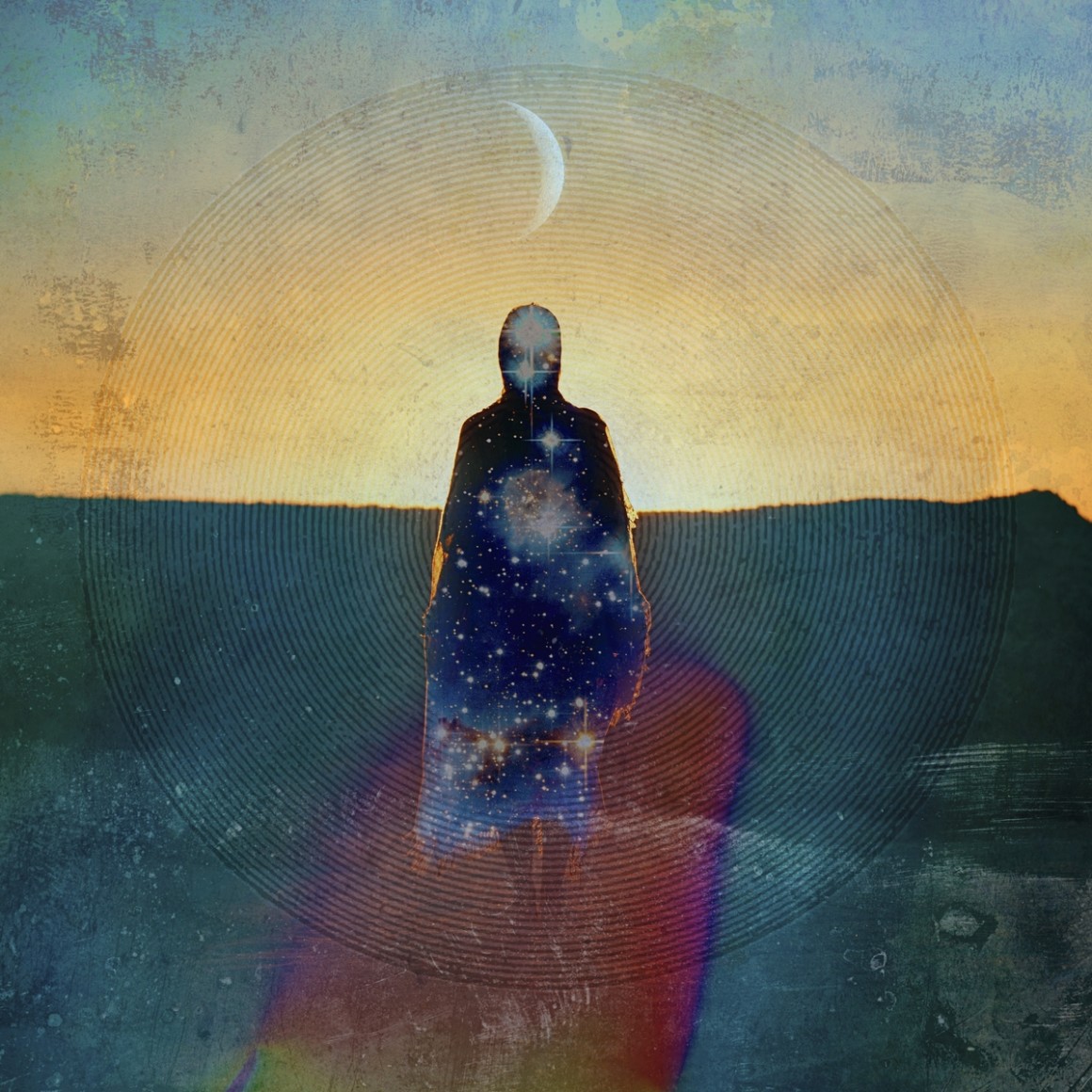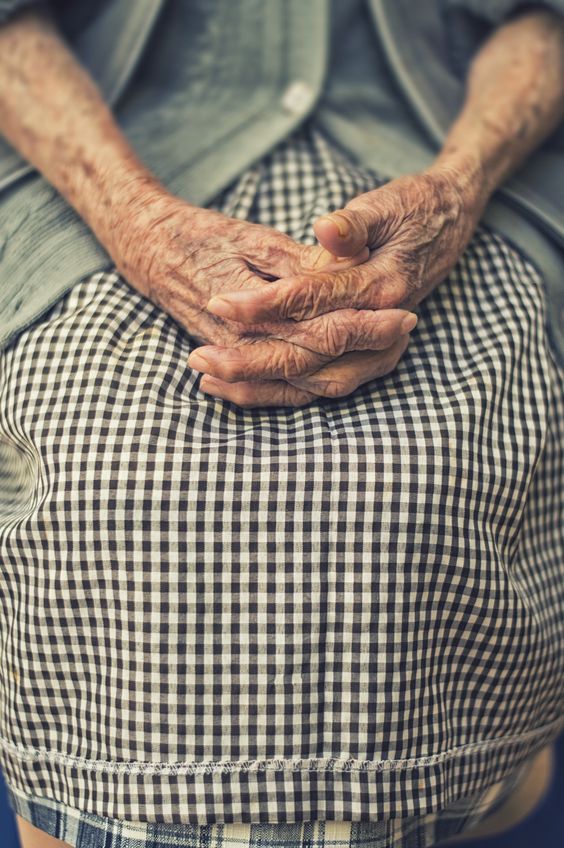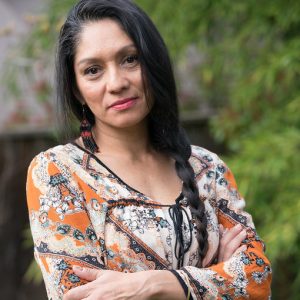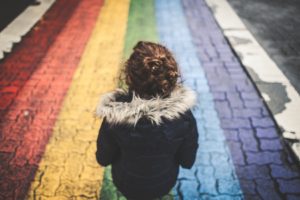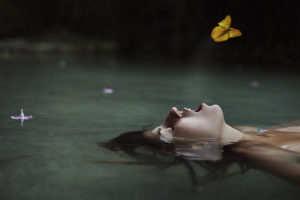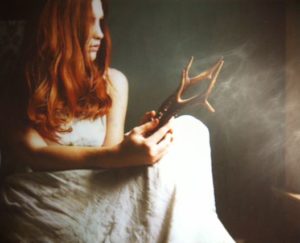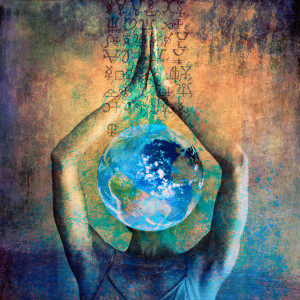Throughout my life I have had many identities. As a kid growing up in Texas I understood myself to be Mexican and Catholic. There were other ways of identifying myself and my family, but there wasn’t as much attention paid to the identity of farmer, poor, loud, etc. I felt the sting of those labels sometimes, but they didn’t affect my life or lifestyle like being Mexican and Catholic did.
I began questioning my identity early on because my paternal grandmother lived with us. She was blind from diabetes and it was my job to care for her and help her get around. We shared a bed so I could help if she needed to get up in the middle of the night. I was one of the few grandkids who had seen her with her hair down, much less touch it, and I would comb it for her every night. This intimacy with my grandmother afforded me the chance to hear things I believe she rarely spoke aloud because of the consequences.
She never revealed which nation she was from or her tribal affiliation, but she would speak of her ways and whisper the memories. She would whisper to me every day that I was not Catholic but Indian and would remind me not to share this out loud with anyone, as it would cause so much trouble for us both. I believed her with my whole heart even though I had no idea what it meant not to be Catholic or what being Indian meant or looked like. I did, however, understand very clearly that being Indian was not a good thing and was the opposite of Catholicism.
When my grandmother died, it was the first death I had experienced and it also felt like the first major change in my identity. When she passed, I secretly decided I was not Catholic but Indian. At the same time, I knew I had to DO all the things expected of me as a Catholic or my life would be hell. I went through the motions of Catholicism as a young adult, but within me a whole other awareness was growing. I began paying attention to what identity meant to me, to what kind of person I was showing up as depending on the identity I believed I was putting on at any given moment. How was this person who I believed I was affecting my loved ones and the world and, most importantly, how was it affecting me?
As an adult this experience led me to focus my studies and dedicate my life to understanding my identity as an indigenous woman. I learned about and fully embraced my indigenous background as a tribal member of the Carrizo/Comecrudo Nation of Texas—not only on a personal level but also on a societal one. I began to commit my life’s work to dismantling the doctrine of discovery—that erroneous but popular belief that Christopher Columbus somehow discovered this land when he set foot on it, even though we carried so many centuries of tradition, community, and discovery here before him. I began walking as a teacher (to anyone who would allow me) informed in historical trauma and how it manifests in our Native communities.
As an indigenous woman not allowed to live as one for much of my life, I understand deeply the importance of our identity, especially as women. In our Western American culture, women are constantly told what we should identify as and how to show up as women, as leaders, as mothers, as friends, as sisters, etc. Showing up as I am, as an indigenous woman, has brought beauty as well as challenge. It can even sometimes feel dangerous, as indigenous women face a much higher murder rate than the general U.S. popoulation, as well as the highest rate of domestic violence—something I’ve experienced in my own life.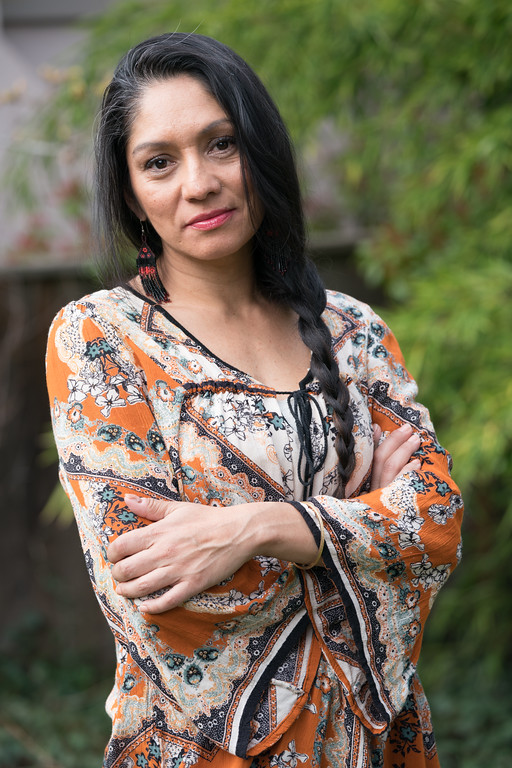
Although it is difficult, I have come to experience a fierceness and comfort knowing exactly where I come from. I can now recount my ancestors’ land base, our life ways, and our tribal family. This also allows for a more intimate connection to other indigenous peoples of this land who are ready to welcome me as an original person of this continent.
The process of decolonizing myself has meant diving into learning wholeheartedly my true background, before the Western invasion and before Catholicism, before it was bad to be Indian, when we weren’t called Indians but by our nations, clans, and tribes.
The most challenging part of identity has been knowing for myself exactly what that means to me—navigating my own ideas along with society’s ideas about what I should be identified as. But in the process, I’ve discovered so much power.
And that’s what I want to share and say: Seek where you come from. Bypass your family’s resistance—or your own—to tell your whole story and see how empowered you can become and how strong your voice can be. I guarantee that in this process, you can find yourself standing strong and not taking any shit. We can all become more empowered—as individuals, as women, as fierce carriers of our family lineage and wisdom. I can’t help but think back to my grandmother, to all she endured and lost as well as the strength she carried inside, and how honored I am to have the chance to carry her whispered ways and secrets proudly forward into the world.
Illustration by Elena Ray; photos by Christian Newman via Unsplash and Teresa Cisneros
